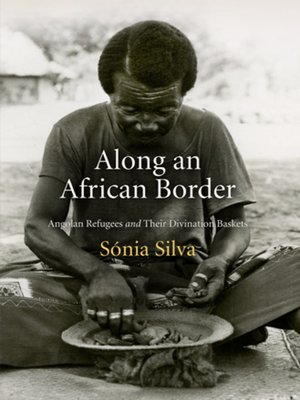Along an African Border
ebook ∣ Angolan Refugees and Their Divination Baskets · Contemporary Ethnography
By Sonia Silva

Sign up to save your library
With an OverDrive account, you can save your favorite libraries for at-a-glance information about availability. Find out more about OverDrive accounts.
Find this title in Libby, the library reading app by OverDrive.



Search for a digital library with this title
Title found at these libraries:
| Library Name | Distance |
|---|---|
| Loading... |
The divination baskets of south Central Africa are woven for a specific purpose. The baskets, known as lipele, contain sixty or so small articles, from seeds, claws, and minuscule horns to wooden carvings. Each article has its own name and symbolic meaning, and collectively they are known as jipelo. For the Luvale and related peoples, the lipele is more than a container of souvenirs; it is a tool, a source of crucial information from the ancestral past and advice for the future.
In Along an African Border, anthropologist Sónia Silva examines how Angolan refugees living in Zambia use these divination baskets to cope with daily life in a new land. Silva documents the special processes involved in weaving the baskets and transforming them into oracles. She speaks with diviners who make their living interpreting lipele messages and speaks also with their knowledge-seeking clients. To the Luvale, these baskets are capable of thinking, hearing, judging, and responding. They communicate by means of jipelo articles drawn in configurations, interact with persons and other objects, punish wrongdoers, assist people in need, and, much like humans, go through a life course that is marked with an initiation ceremony and a special burial. The lipele functions in a state between object and person.
Notably absent from lipele divination is any discussion or representation in the form of symbolic objects of the violence in Angola or the Luvale's relocation struggles—instead, the consultation focuses on age-old personal issues of illness, reproduction, and death. As Silva demonstrates in this sophisticated and richly illustrated ethnography, lipele help people maintain their links to kin and tradition in a world of transience and uncertainty.







